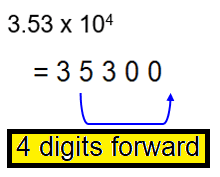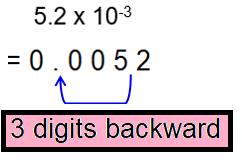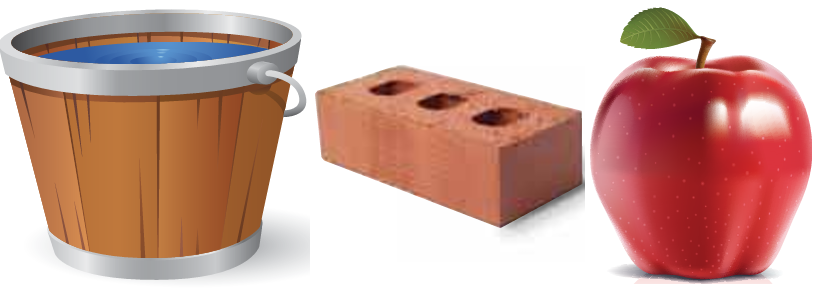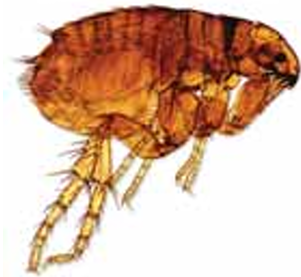CONVERT BETWEEN SCIENTIFIC NOTATION AND STANDARD FORM
Subscribe to our ▶️ YouTube channel 🔴 for the latest videos, updates, and tips.
Scientific notation helps us to represent the numbers which are very huge or very tiny in a form of multiplication of single-digit numbers and 10 raised to the power of the respective exponent.
- The exponent is positive if the number is very large.
- It is negative if the number is very small.
a × 10b ; 1 ≤ a < 10
 |
 |
Convert Between Scientific Notation and Standard Form
Problem 1 :
5.3 × 106
Solution :
Exponent is positive, so we have to move the decimal 6 digits to the right.
But we have one digit after the decimal. We should use zeroes for the rest of the places.
5300000.
So, the number 5.3 × 106 in standard notation is 53,00,000.
Problem 2 :
4.7 × 10-5
Solution :
= 4.7 × 10-5
Exponent is negative, so we have to move the decimal 5 digits to the left.
= 0.000047
Problem 3 :
5 × 104
Solution :
= 5 × 104
Exponent is positive, so we have to move the decimal 4 digits to the right.
50000.
So, the number 5 × 104 in standard notation is 50000.
Problem 4 :
4.59 × 101
Solution :
= 4.59 × 101
Exponent is positive 1, so we have to move the decimal one digit to the right.
= 45.9
So, the number 4.59 × 101 in standard notation is 45.9.
Problem 5 :
6.7 × 104
Solution :
= 6.7 × 104
We have positive 4, so move the decimal 4 digits to the right.
So, the number 6.7 × 104 in standard notation is 67000.
Problem 6 :
9.6 × 104
Solution :
= 9.6 × 104
We have positive 4, so move the decimal 4 digits to the right.
= 96000
Problem 7 :
8.78 × 103
Solution :
= 8.78 × 103
Exponent is positive 3, so we have to move the decimal 3 digits to the right.
8780.
Problem 8 :
5.82 × 103
Solution :
= 5.82 × 103
We have positive exponent, we have to move the decimal to the right.
= 5820
So, the number 5.82 × 103 in standard notation is 5820.
Problem 9 :
1.3 × 105
Solution :
= 1.3 × 105
We have positive exponent, so we have to move the decimal 5 digits to the right.
= 130000
Problem 10 :
4.1 × 104
Solution :
= 4.1 × 104
= 41000
So, the number 4.1 × 104 in standard notation is 41000.
Problem 11 :
6.4 × 102
Solution :
= 6.4 × 102
= 640
Problem 12 :
6.91 × 10-2
Solution :
= 6.91 × 10-2
= 0.0691
Problem 13 :
An object with a lesser density than water will float. An object with a greater density than water will sink. Use each given density (in kilograms per cubic meter) to explain what happens when you place a brick and an apple in water.
Water: 1.0 × 103 Brick: 1.84 × 103 Apple: 6.41 × 10

Solution :
Water = 1.0 x 103
Since we have positive exponent, moving the decimal three digits to the right, we get
= 1000 kg per cubic meter
Brick = 1.84 x 103
Moving the decimal three digits to the right, we get
= 1840 kg per cubic meter
Apple = 6.41 x 10
= 64.1 kg per cubic meter.
The apple is less dense than water, so it will fl oat. The brick is denser than water, so it will sink.
Problem 14 :
A dog has 100 female fleas. How much blood do the fleas consume per day?

A female flea consumes about 1.4 x 10-5 liter of blood per day.
Solution :
Quantity of blood cunsuming by female flea = 1.4 x 10-5 liter
Required quantity of blood consumed by 100 female fleas,
= 1.4 x 10-5 x 100
Multiplying 1.4 by 100 we get 140
= 140 x 10-5
Since we have negative exponent and the power 5, we have to move the decimal 5 digits to the left. So, 0.00140 liters.
1 liter = 1000 ml
Conversion from liter to ml :
= 0.00140 x 1000
= 1.4 ml
Problem 15 :
Describe and correct the error in writing the number in standard form.

Solution :
Given that,
4.1 x 10-6
Since we have negative exponent, we have to move the decimal to the left of 6 digits.
0.0000041
The error is, instead of moving the decimal to the right, they moved to the left.
Problem 16 :
A googol is 1.0 × 10100. How many zeros are in a googol?
Solution :
= 1.0 × 10100
Since we have the power 100, we may have to move the decimal 100 digits to the right. We have only one 0, we may have to 100 digits, other than one 0 we may have to use 99 more zeroes.
Problem 17 :
The table shows the surface temperatures of five stars.
a. Which star has the highest surface temperature?
b. Which star has the lowest surface temperature?

Solution :
Surface temperature in Betelgeuse = 6.2 x 103
Moving 3 digits to the right,
= 6200 F
Surface temperature in Bellatrix = 3.8 x 104
Moving 4 digits to the right,
= 38000 F
Surface temperature in Sun = 1.1 x 104
Moving 4 digits to the right,
= 11000 F
Surface temperature in Aldebaran = 7.2 x 103
Moving 3 digits to the right,
= 7200 F
Surface temperature in Rigel = 2.2 x 104
Moving 4 digits to the right,
= 22000 F
a. Bellatrix (38000 F) has the highest surface temperature.
b. Betelgeuse (6200 F) has the lowest surface temperature.
Subscribe to our ▶️ YouTube channel 🔴 for the latest videos, updates, and tips.
Recent Articles
-
Finding Range of Values Inequality Problems
May 21, 24 08:51 PM
Finding Range of Values Inequality Problems -
Solving Two Step Inequality Word Problems
May 21, 24 08:51 AM
Solving Two Step Inequality Word Problems -
Exponential Function Context and Data Modeling
May 20, 24 10:45 PM
Exponential Function Context and Data Modeling